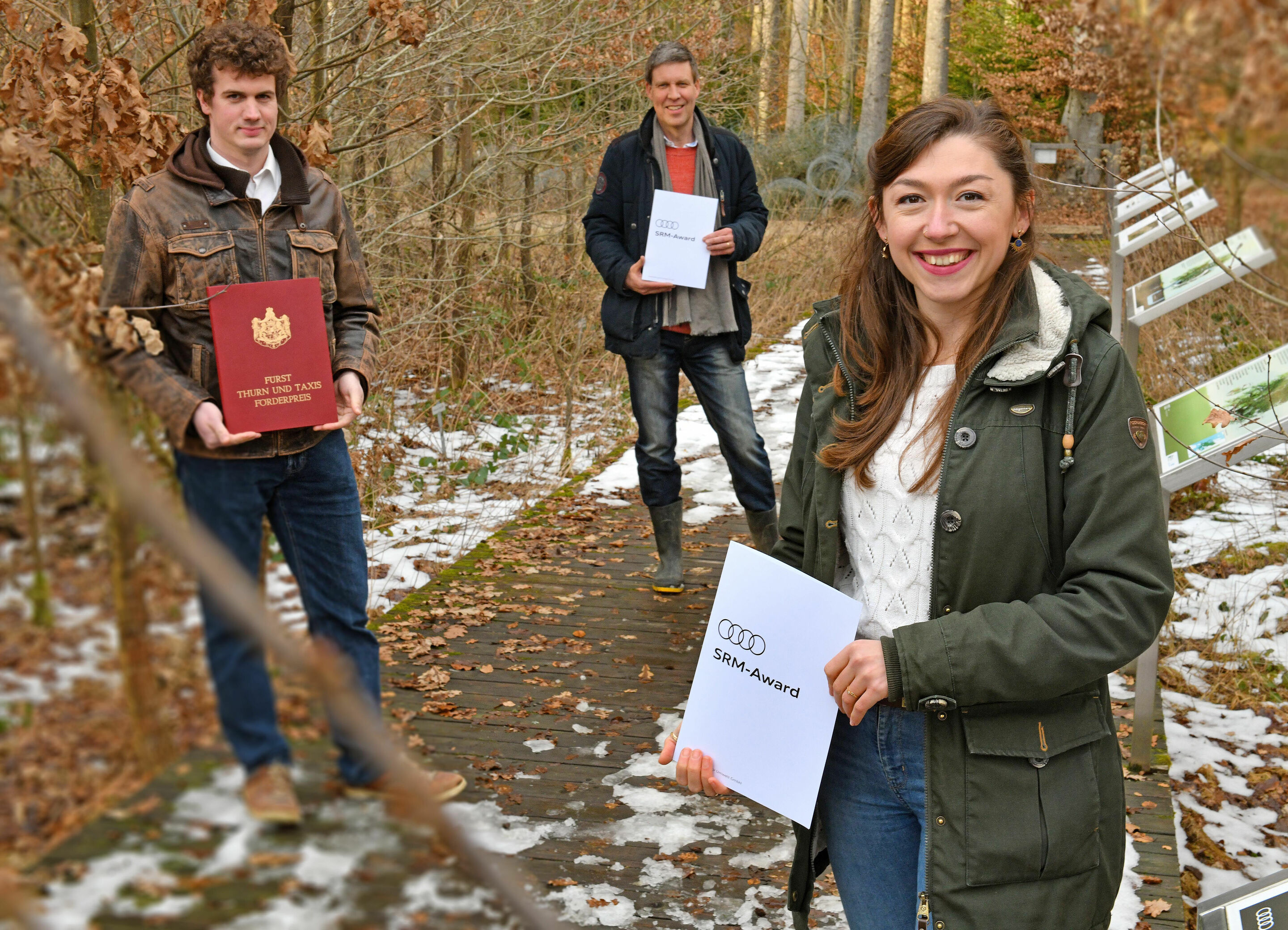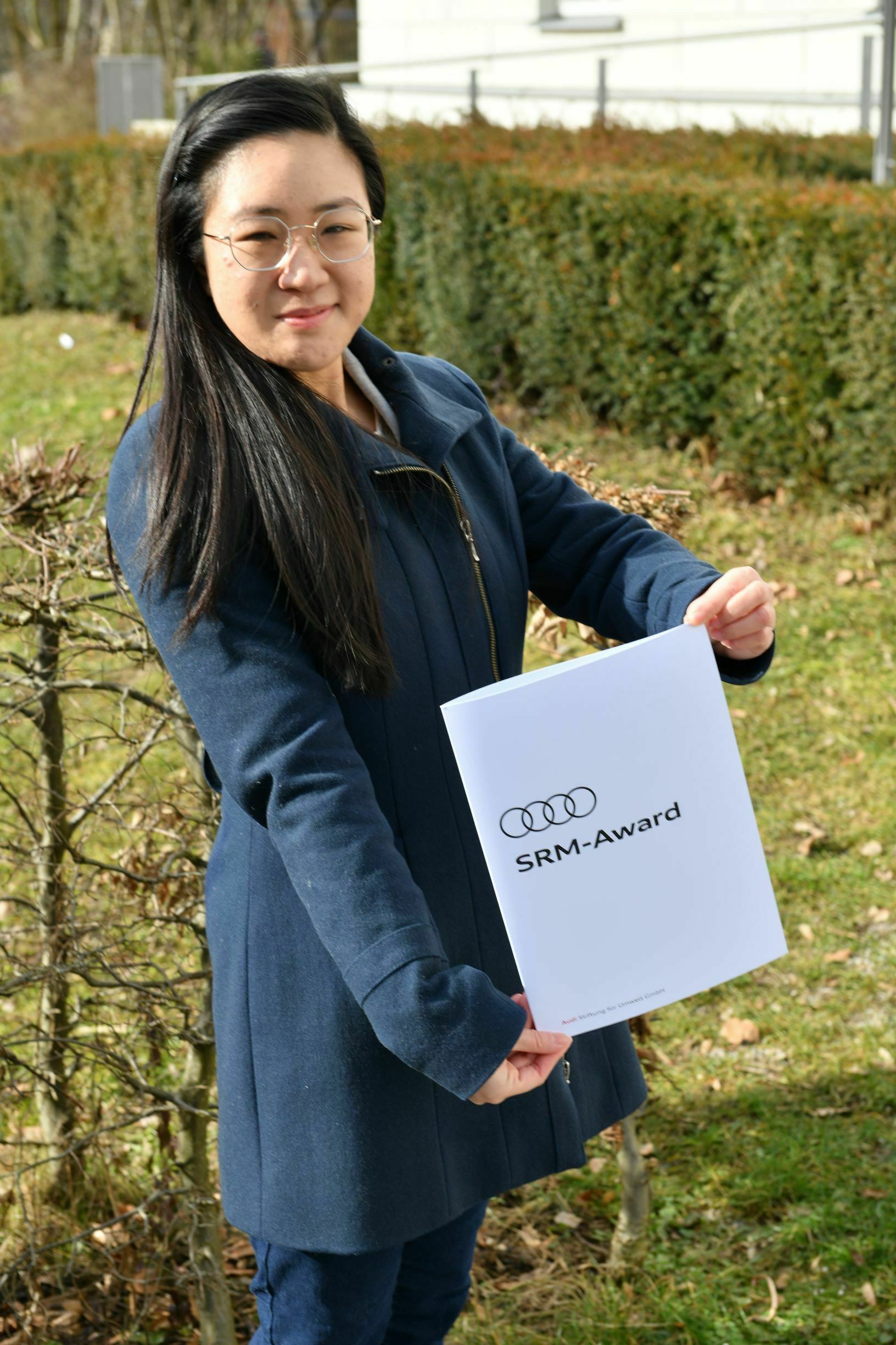Interactions between humans and the climate: Audi Environmental Foundation honors research work
- Junior researcher Astrid Manciu studies the role of vegetation in the climate system and the effects of deforestation and global warming on the regional climate in Colombia
- Tiffany Yu investigates how urban areas can be designed to be restorative and green in line with the residents’ preferences and requests
- Rüdiger Recknagel, Director of the Audi Environmental Foundation: “For a better future, we need innovative research approaches to learn more about the interaction between humans and nature.”
The Audi Environmental Foundation has honored the master’s theses of researchers Astrid Manciu and Tiffany Yu from the Technical University of Munich (TUM) with the “Sustainable Resource Management Award” (SRM). The award was presented for the tenth time. This year, the ceremony was part of a joint event with the “Thurn und Taxis Förderpreis für Forstwissenschaft” (forestry sponsorship award). The winners each received EUR 1,500 in prize money for their academic theses.
In their master’s theses, Astrid Manciu and Tiffany Yu dived deep into different aspects of the interactions between humans and the environment. Astrid Manciu studies the role of vegetation in the climate system, a topic on which little research has been done so far. She investigates how global warming and the increasing conversion of the Colombian tropical rain forests into agricultural crop land, for example, affect the regional climate. Colombia is a hot spot for biodiversity and therefore very susceptible to climate change. Since the country is recording high rates of deforestation, Astrid Manciu’s study is highly topical. She used the WRF (“Weather Research and Forecasting model”) climate model to simulate her results and was able to prove that climate change will lead to a rise in temperature in Colombia, and in the mountainous areas in particular. She further showed that while climate change is indeed increasing the level of precipitation over forested areas, this effect is canceled out by another phenomenon. The change in land cover is reducing the amount of precipitation and, surprisingly, also the temperature over deforested areas in particular. This phenomenon can be observed in the Andes and on the Caribbean coast in particular. A further unexpected finding was that the climate model had underrated or overrated a number of parameters.
Tiffany Yu researched the positive effects of proximity to nature on human health and well-being in urban areas. The options of coming into contact with nature on a daily basis are limited in major cities and metropolitan areas. Public green spaces in cities are therefore all the more important for residents to relieve stress and increase their level of well-being. In order to create effective relaxing environments in cities and encourage the residents to use them, city planners need to understand the people’s perceptions of and preferences for their environment. To gain an insight into this matter, Yu developed an inventive research design and gathered data by means of photo grouping. She found out, for example, that residents find pictures of “hidden” gardens and green spaces far away from city life to be pleasant and beautiful. Her master’s thesis thus provides clear findings as to how urban areas can be designed with people-friendly green spaces.
Since 2009, the Audi Environmental Foundation has been supporting young scientists whose ideas are making a valuable contribution to resource management and greater sustainability. “With their master’s theses, the two junior researchers Tiffany Yu and Astrid Manciu offer a very vivid and important insight into a more sustainable way of living together. This is exactly the kind of research approaches we need in order to even better understand environmental impacts. This is the only way we can support targeted measures for the preservation of the ecosystems,” said Rüdiger Recknagel, Director of the Audi Environmental Foundation.

